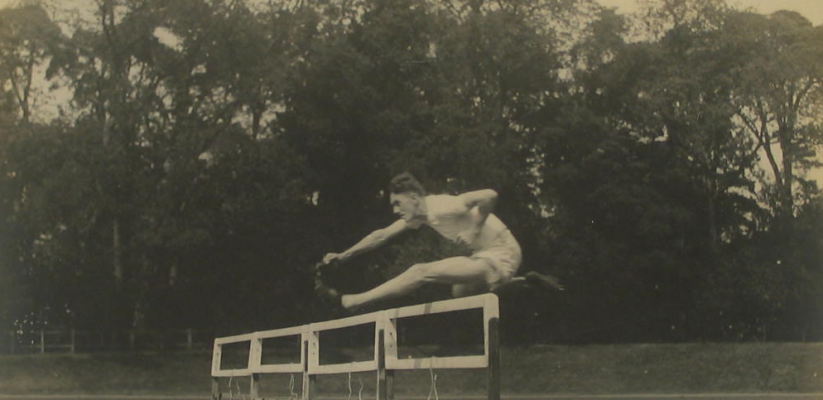The Poly in Paris
Today sees the opening of the 2024 Summer Olympics in Paris, and provides us with a good opportunity to look back 100 years to the last time the Games were held in the French capital, and how athletes from the Polytechnic took part.
The overlooked Olympiad?
Most discussion about Olympic success by Polytechnic athletes focusses on the first two London Olympic Games, which took place in 1908 and 1948. The involvement of the Polytechnic Harriers in particular is significant in 1908, and to this date this remains the most successful games for Great Britain, winning 146 medals in total, and finishing first in the medal table. However, only 22 nations competed in the 1908 Olympics.
In comparison, the 1924 Olympics were a more modest achievement for the British team, finishing fourth on the table out of 44 competing nations, and winning 34 medals in total. Three of these medals were won by men from Polytechnic clubs.
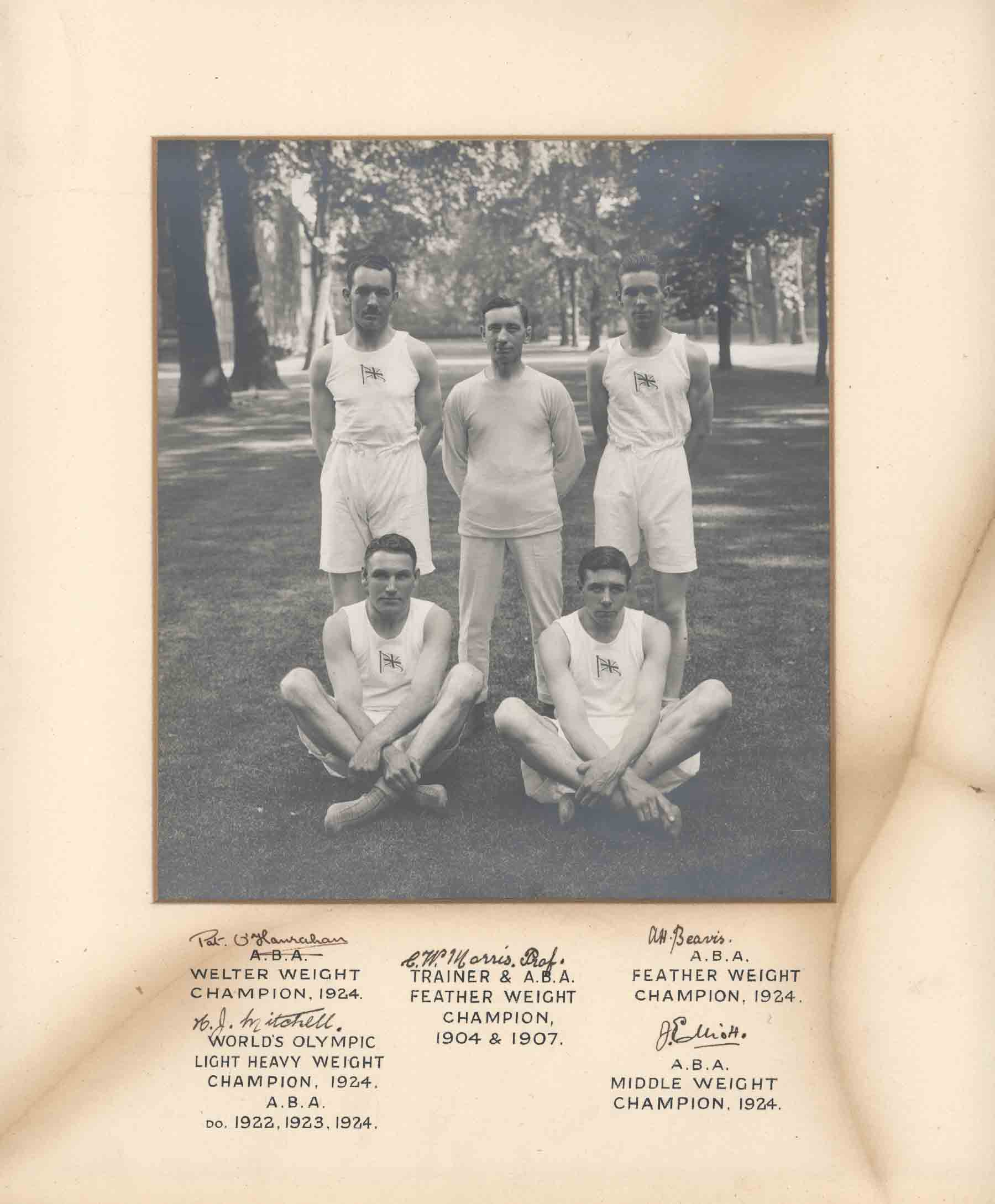
Boxing
Harold James Mitchell won Gold in the Boxing Men’s Light Heavyweight, and John Elliot won Silver in the Boxing Men’s Middleweight. Both men were members of the Polytechnic Boxing Club, which had produced many champions in the Amateur Boxing Association of England since its formation in 1888. Two other members, Arthur Beavis and Patrick O’Hanrahan also competed in Paris, but did not place in their weight categories. Later in the year, the Studd Trophy committee unanimously decided to award Mitchell the trophy that year, and also give a special silver medal to Elliot for reaching the final. The Polytechnic Magazine, when reporting on this prizegiving commented that:
the record of Mitchell is extraordinary. For three years past he has won every contest he has gone in for, has won the Amateur Boxing Championship on each occasion, and has never met with defeat.
The Polytechnic Magazine Vol LXIV No. 10, pp. 183-184
The Polytechnic Boxing Club was at the height of its success in the 1920s and 1930s. At this time there were over 500 members. Training took place in the Gym at 309 Regent Street.
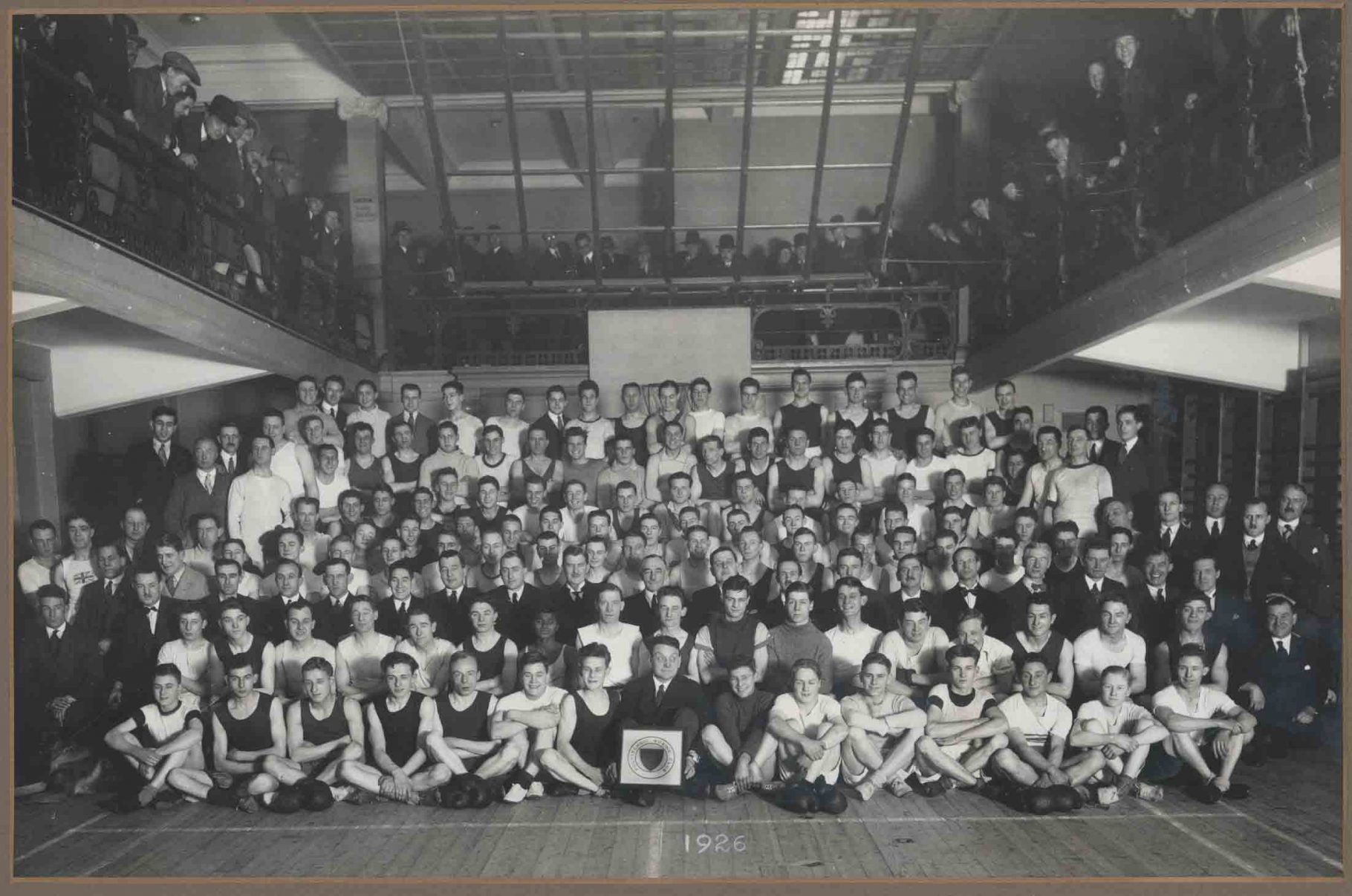
Boxing has been one of the sports in which Britain has enjoyed particular success in Olympic history, but after these games in 1924, the British team would not win a Gold boxing medal again until 1956.
Athletics and the Polytechnic Harriers
Polytechnic Harrier Richard Ripley won a Bronze medal for Great Britain as part of the Men’s 4x400m relay team, along with teammates Guy Butler, George Renwick, and Edward Toms. Arthur Winter, in his history of the Polytechnic Sports Clubs, writes that Ripley joined the Polytechnic Harriers in 1923 from a club in Darlington, as he wanted to train under noted coach Sam Mussabini1. Harold Abrahams, made famous in the film Chariots of Fire, also trained under Mussabini. Abrahams had previously been a member of the Polytechnic Harriers himself, leaving before 1924, but continued to be a member of the Polytechnic Hockey Club.
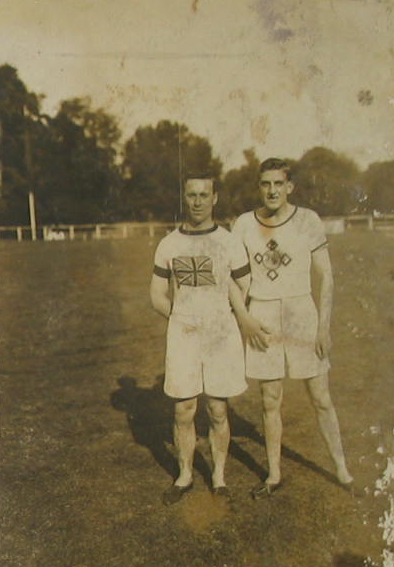
Several other Harriers competed in the 1924 Olympic Games, but did not win medals. These included Fred Gaby, who reached the Semifinals of the 110m hurdles, and Alex ‘Tiny’ Sangwine who was eliminated in the Round of 16 of the Men’s freestyle heavyweight wrestling.
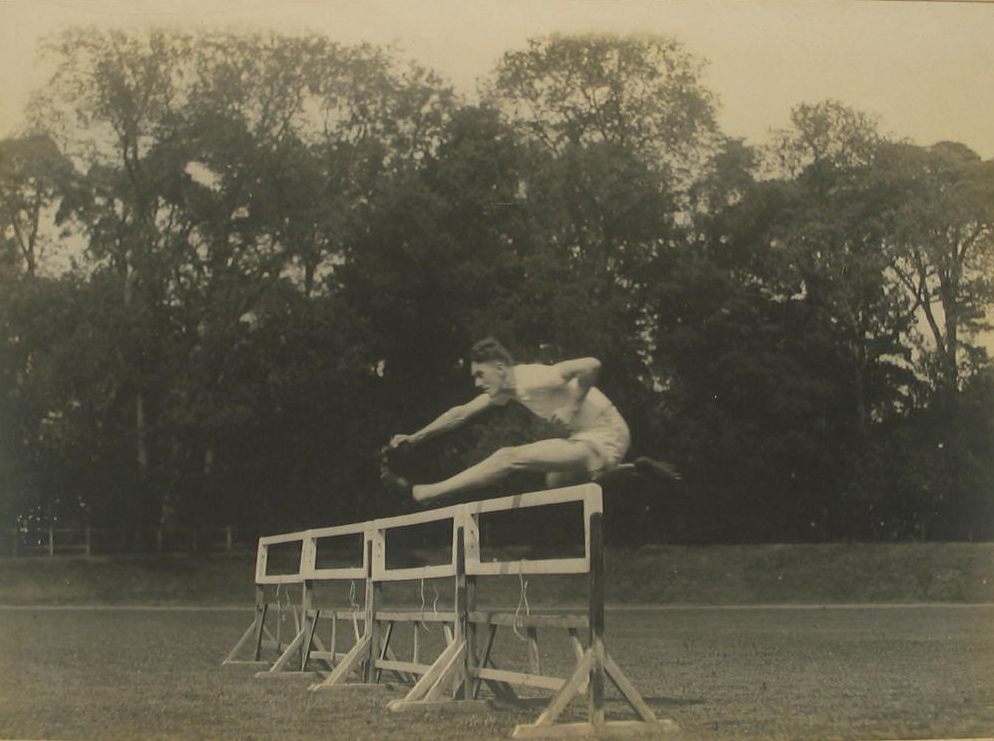
Water Polo and Swimming
When researching the performance of the Great British team, and Polytechnic club members in particular, at the Paris games, I was surprised to discover this country’s history of success in water polo.
The 1900 Games in Paris saw the debut of Olympic water polo, and the British team won Gold in that year, and in the following three tournaments they attended (1908, 1912 and 1920). It was therefore a reasonable assumption that the British team would bring home medals in 1924. Alfred Harold Pycock, a member of the Polytechnic Swimming and Water Polo Club, was chosen to play for England in a match against Scotland and Wales, in the final trial to select the Great British Olympic team. The Polytechnic Magazine wrote:
We feel that Pycock has long been deserving of this honour and we offer him our sincerest congratulations on securing his English cap. Well played, Py!
The Polytechnic Magazine Vol LXIV No. 6, p. 100
Sadly, Pycock was not successful in joining the British water polo team, and the resulting team were knocked out in the First Round in Paris. They were beaten 7-6 by the team from Hungary. The next Olympics in 1928 saw the Hungarian team win Silver, and that country would go on to dominate the sport for decades to follow. Between 1928 and 1980, Hungary won a medal in water polo at every Olympics – six times winning Gold. It seems that Pycock was unlucky to come in at the end of Britain’s dominance of the sport, and the emerging of a new era.
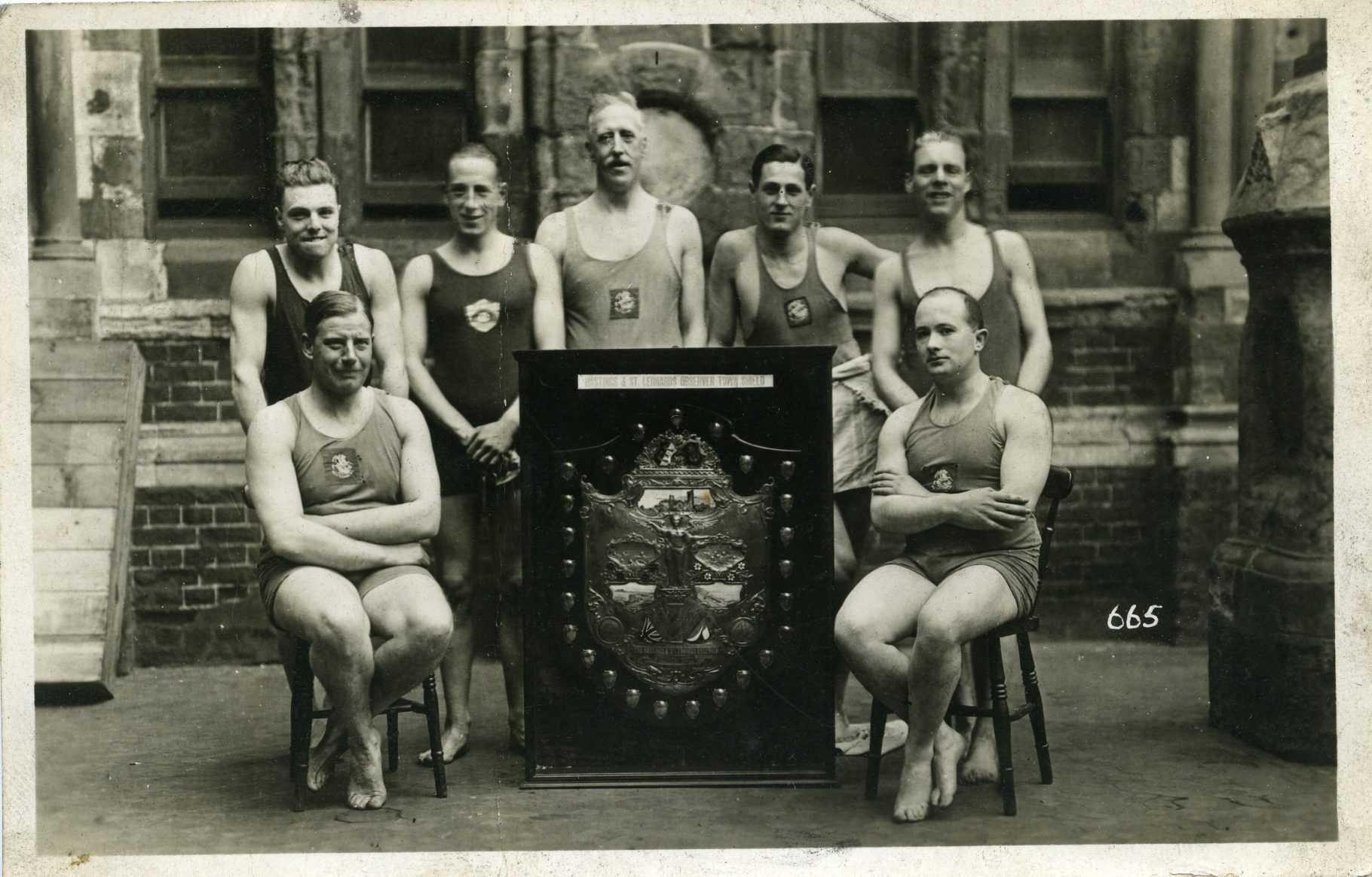
However, he did represent Britain in the Olympics that year as a swimmer, reaching the semifinals of the 100m freestyle. He was beaten in his heats and his semi-final by Johnny Weissmuller. Weissmuller, who would go on to be famous for playing Tarzan in twelve films, had one of the best competitive swimming records of the 20th century. He retired from competitive swimming in 1929 having never lost a race.
The Polytechnic Swimming and Water Polo Club trained in the swimming pool at 309 Regent Street. The pool was built in 1883 and closed in 1981. More information about the pool can be found in our Research Guides.
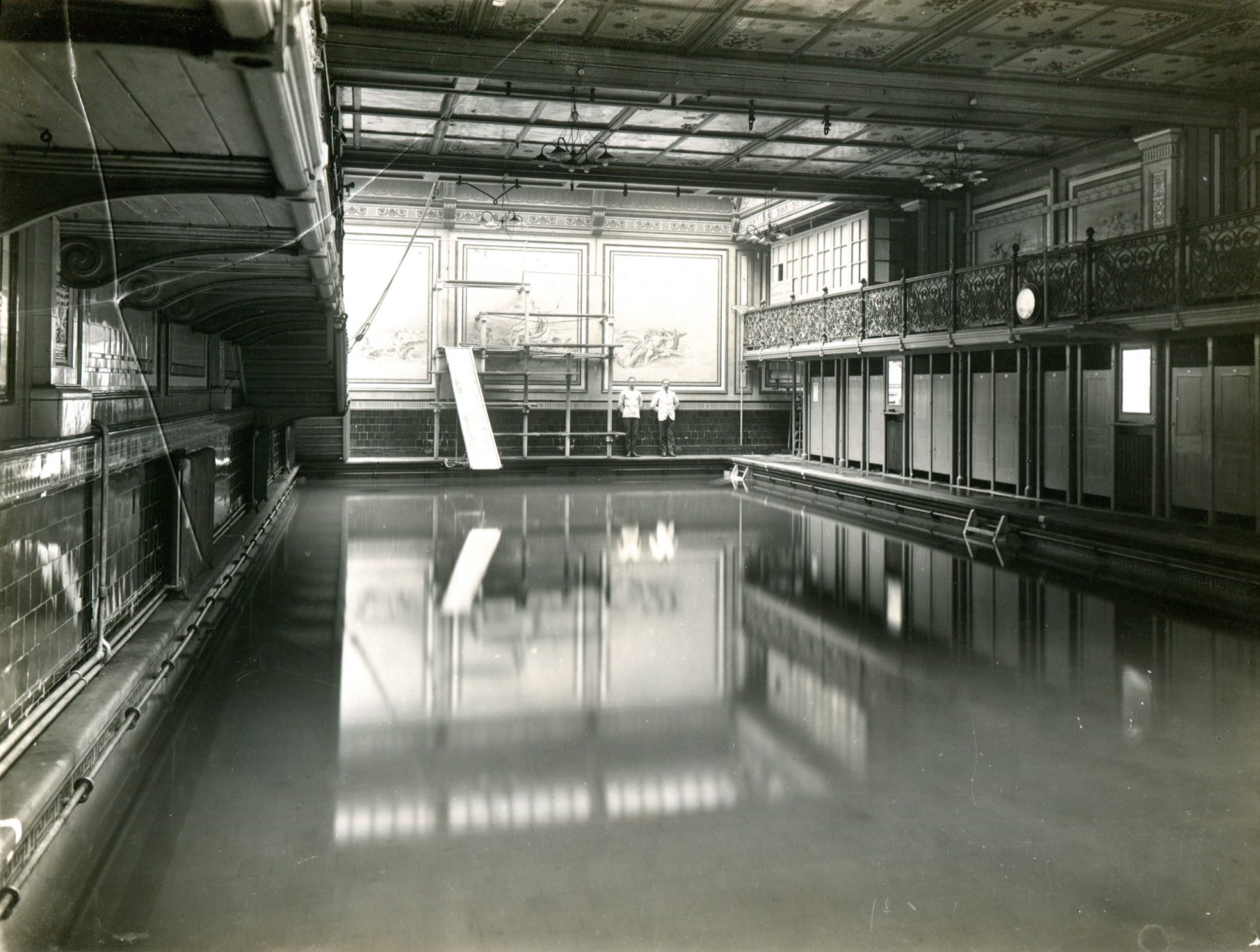
Perhaps it is because the 1924 Olympic Games has featured less prominently in our archive collections that I have been encouraged to dig a little deeper, and look beyond just those who won medals. By finding out more about men like Alfred Pycock, I have discovered the history in the finer print, not just the headlines. Our institution’s sporting heritage is rich with stories such as these. To discover some yourself, please browse our online catalogue, or the fully digitised Polytechnic Magazine.
Lorna Bannister, Senior Archivist
July 2024
- Winter, Arthur, They Made Today: A History of 100 Years of the Polytechnic Sports Clubs and Societies compiled between 1975-1980, published by the Polytechnic Harriers [PHA/7/6/4]
